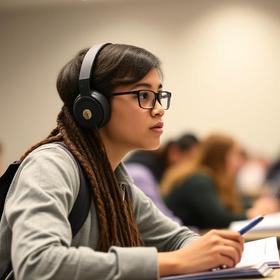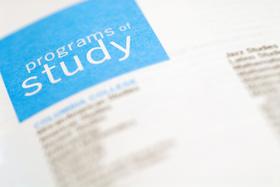While each high school year has unique and specific goals, seniors can begin to prepare for their step in higher education as they make plans to attend community college.
Developing a Plan for Enrollment
As a senior, you will make many important decisions regarding the next phase of your life. Choosing a community college means finding a campus that is in line with your goals, both academically and professionally.
Since community colleges can provide students with different areas of academic focus, students can begin their investigation of specific schools by requesting catalogs from each community college. Catalogs and websites will provide information about programs, course schedules, and graduation plans. After reviewing information, a senior can also make an appointment with a college counselor. A counselor can discuss with student plans for a career, job interests, and professional guidance. After narrowing down career options, a counselor and senior can discuss whether or not a particular college is a right fit for specific areas of study.
This video offers suggestions for planning your first year at community college.
Financial Planning - Anticipating the Costs
As the costs of college can often be expensive, high school seniors and parents can make the appropriate plans by reviewing financial aid and loan options.
Remember, community college is indeed much more affordable than traditional four-year institutions. However, planning ahead will help the senior determine whether or not to attend community college full-time, or to also work in a part-time or full-time position.
Preparing for Placement Tests
Indeed, community college admissions do not require a senior to take any of the national standardized tests, such as the SAT or ACT. However, you will most likely be required to take a placement test, which appropriately evaluates in which class level you should enroll.
Although the placement test is intended to evaluate the information and knowledge you already have, you can still prepare for these exams. In fact, many of the placement exams may be testing you on the knowledge you possess but have not utilized in several years. Thus, reviewing ahead of time can ensure that you are placed into the appropriate class levels, helping propel your academic career forward.
There are typically several placement tests most community colleges administer:
- Math Placement Test – This exam encompasses you working through math problems without a calculator. Make sure you practice all of the levels of math you have learned, starting with arithmetic to calculus.
- Reading Placement Test – In most of these exams, you are required to read a passage and then answer specific questions regarding the text. This testing will include vocabulary, understanding inferences, and demonstrating that you can find exact literary information. Study the reading comprehension sections in the SAT tests, and grow accustomed to reading the questions first before the passage. This will help you locate the important information in the passage itself.
- Writing Placement Test – In this type of exam, you are typically tested on your grasp of grammar and literary mechanics. For example, you will be asked to correct grammar mistakes or misplaced information in a passage. The best way to prepare for this type of exam is to brush up on your grammar rules, as well as read literature such as Time Magazine or the Wall Street Journal.
Taking time to prepare for placement tests will ensure that you are enrolled in classes at your appropriate level – instead of ones that cover material you have already learned in high school.
This video relates a first-year student's experience in community college.
Academic Preparation
High School Courses
To prepare for college, high school students of all grades should enroll in academically appropriate classes. Schedules for high school students should balance both core academic classes, such as math, English, science, and so forth, along with challenging extra-curricular options. Also, since many community colleges offer both on-campus and distance learning opportunities, a senior should possess computer skills. With distance learning, some classes allow students to review lecture material and course information online; if a senior is interested in this, then he or she must be well versed in his/her computer proficiency. If a senior is struggling in this area, then high school computer courses can help better prepare seniors for improvement and success.
Earning Early College Credit
Continuing, many high schools offer advanced placement (AP) courses and exams. Some AP courses are college-level courses, and they may actually apply towards a senior’s community college degree. If a student has enrolled in an AP course and received a score of 3 or higher on their AP exam, then the admissions office at some colleges may approve this score for college credit. To prepare a plan of action, you should research the community colleges you are interested in attending, enquiring to see if they give credit for an AP exam that has a 3 or higher score.
This video gives an overview of learning accommodations at community college.
Evaluating Learning Accommodations
If a senior wants to pursue community college course work but struggles with basic reading, writing, science, or math skills, then some community colleges may actually help prepare such learners, prior to taking core classes. Most community colleges do offer developmental curriculum, and they have resource centers dedicated to helping students in a one-on-one teaching environment. To find out if a community college offers this specific assistance, a senior can meet with his or her high school counselor or can visit the learning resources center at specific colleges. In doing this, students can find out the special services available to receive the appropriate amount of support once in school.
Questions? Contact us on Facebook. @communitycollegereview















